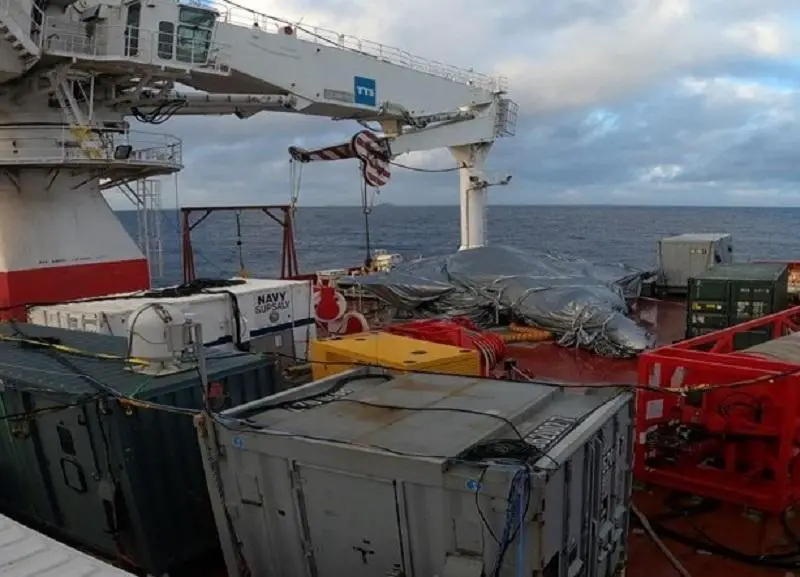U.S. 7th Fleet’s Task Force (CTF) 75 and Naval Sea Systems Command (NAVSEA) successfully retrieved the F-35C Lightning II aircraft which crashed earlier this year in the South China Sea, March 2. The wreckage was recovered from a depth of approximately 12,400-feet by a team from CTF 75 and the NAVSEA’s Supervisor of Salvage and Diving (SUPSALV) embarked on the diving support construction vessel (DSCV) Picasso. The F-35C Lightning II, assigned to Carrier Air Wing (CVW) 2, crashed while USS Carl Vinson (CVN 70) was conducting routine flight operations in the South China Sea on Jan. 24.
“The task force’s expertise in rapid, scalable command, control, and communications, agile logistics, organic security, and explosive ordnance disposal was the most flexible choice for the fleet commander to respond in a timely manner. Ultimately, this deliberate approach resulted in the correct capabilities conducting recovery operations within 37 days of the incident. Given the unique challenges of this problem and the unique technical capabilities that NAVSEA delivered, this was an aggressive and achievable timeline,” said CTF 75 Commodore, Capt. Gareth Healy.

The aircraft was recovered using a CURV-21, a remotely operated vehicle (ROV), which attached specialized rigging and lift lines to the aircraft. CURV-21 is a 6,400-pound Remotely Operated Vehicle (ROV) that is designed to meet the US Navy’s deep ocean salvage requirements down to a maximum depth of 20,000 feet of seawater. The ship’s crane lifting hook was then lowered to the seafloor and connected to the rigging, and then lifted the aircraft to the surface and hoisted it onboard Picasso. The aircraft will be delivered to a nearby military installation to aid in the ongoing investigation and evaluated for potential transport to the United States. The recovery effort shows the U.S. Navy commitment to its assets, and a free and open Indo-Pacific.
CTF 75 is 7th Fleet’s primary expeditionary task force and is responsible for the planning and execution of maritime security operations, explosive ordnance disposal, diving, engineering and construction, and underwater construction. It additionally provides direct support to diving and salvage operations and expeditionary intelligence throughout the Indo-Asia-Pacific region. Under Commander, U. S. Pacific Fleet, 7th Fleet is the U.S. Navy’s largest forward-deployed numbered fleet, and routinely interacts and operates with 35 maritime nations in preserving a free and open Indo-Pacific region.















